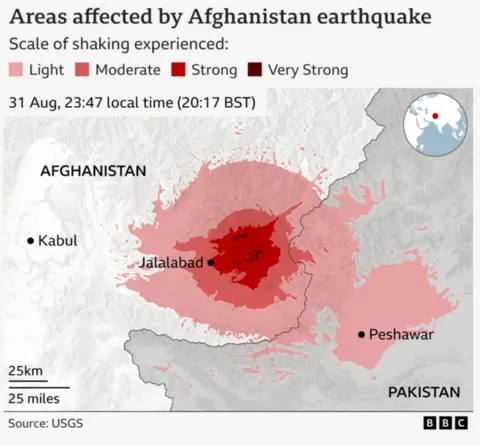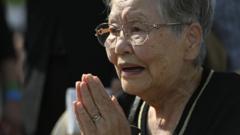In April 1945, British and Canadian troops entered Bergen-Belsen, uncovering a devastating reality of death and disease. Nearly 13,000 unburied corpses and around 60,000 emaciated survivors depicted the grim conditions prior to liberation. At the recent anniversary event, survivors, including 94-year-old Mala Tribich, recalled the horrors they witnessed. Tribich described Belsen as “a place of skeletons” where death was pervasive. Similar reflections were shared by others, including Esther Alice, who spoke about the memory of her mother dying in her arms.
Bergen-Belsen was uniquely preserved in its grotesque state, showcasing the full extent of Nazi atrocities. While other camps had been destroyed or emptied, Bergen-Belsen became a crucial site for documenting the human cost of the Holocaust. The camp had no gas chambers; rather, disease and starvation resulted in approximately 500 deaths per day, particularly in the last weeks of the war. Tragically, after liberation, many survivors continued to die due to malnutrition-related causes.
The anniversary event, attended by British Jews and leaders such as Deputy Prime Minister Angela Rayner, involved the laying of wreaths and readings of psalms. A memorial center now stands in the area, though little physical evidence remains of the former camp, as British soldiers had to burn the huts to contain outbreaks of disease.
Ultimately, the remembrance of Bergen-Belsen serves as a haunting testament to the brutal reality of the Holocaust and the resilience of its survivors, shaping collective memory and global narratives about humanity's darkest chapters.
Bergen-Belsen was uniquely preserved in its grotesque state, showcasing the full extent of Nazi atrocities. While other camps had been destroyed or emptied, Bergen-Belsen became a crucial site for documenting the human cost of the Holocaust. The camp had no gas chambers; rather, disease and starvation resulted in approximately 500 deaths per day, particularly in the last weeks of the war. Tragically, after liberation, many survivors continued to die due to malnutrition-related causes.
The anniversary event, attended by British Jews and leaders such as Deputy Prime Minister Angela Rayner, involved the laying of wreaths and readings of psalms. A memorial center now stands in the area, though little physical evidence remains of the former camp, as British soldiers had to burn the huts to contain outbreaks of disease.
Ultimately, the remembrance of Bergen-Belsen serves as a haunting testament to the brutal reality of the Holocaust and the resilience of its survivors, shaping collective memory and global narratives about humanity's darkest chapters.




















